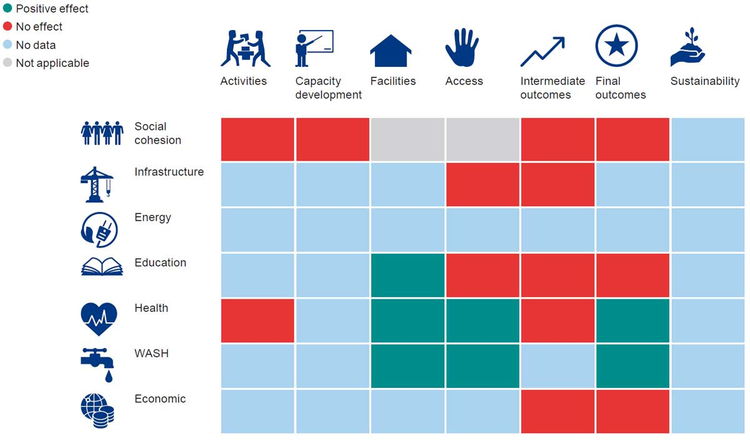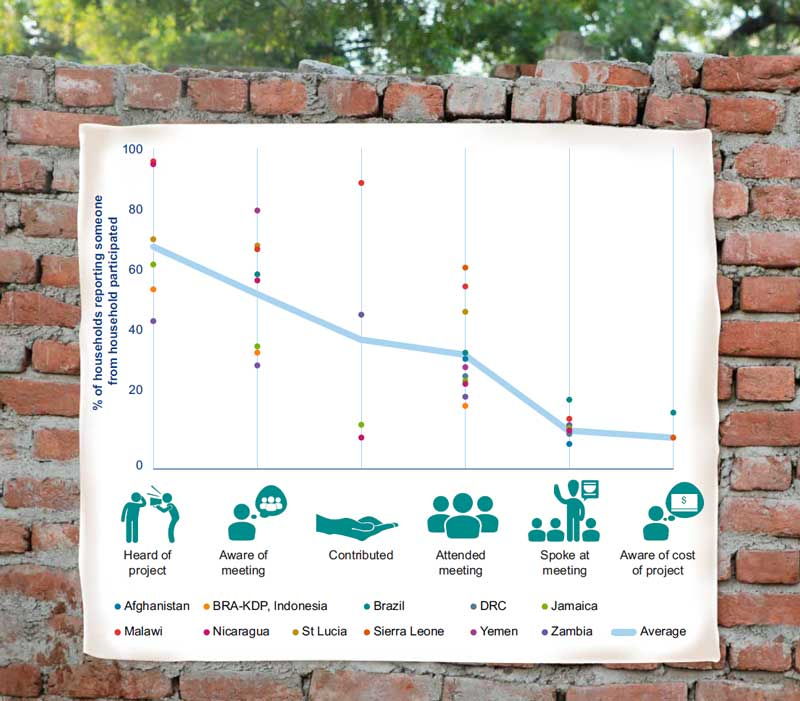Community-driven development: does it build social cohesion or infrastructure? A mixed-method evidence synthesis
3ie Working Paper 30
In community-driven development (CDD) programmes, community members are in charge of identifying, implementing and maintaining externally funded development projects. CDD programmes have been implemented in low- and middle-income countries to fund the building or rehabilitation of schools, water supply and sanitation systems, health facilities, roads, and other kinds of public infrastructure. They have also been used to finance private cash transfers to individual households.
3ie carried out a synthesis study to assess how CDD programmes have evolved over the years and what their impact has been. The authors synthesised evidence from 25 impact evaluations, covering 23 programmes in 21 low- and middle-income countries. They also drew on process evaluations and qualitative research to examine the factors influencing success and failure.
Main findings
The impact of CDD programmes
CDD programmes improve facilities for education, health and water. Investments in water-related infrastructure have reduced the time required for collecting water. These programmes slightly improve health- and water-related outcomes, but not education outcomes.

Community participation in CDD programmes
The entire community does not participate in all aspects of project management and implementation. There is a clear funnel of attrition. Many people may be aware of the programme and the community meeting, but few attend the meeting and fewer still speak or participate in decision-making. Women are only half as likely as men to be aware of CDD programmes, even less likely to attend the community meetings and even less likely still to speak at them. Evidence suggests people may have participated in making bricks, not decisions.

CDD programmes may be using existing social cohesion rather than building it. Numerous factors may affect community involvement, such as the role played by the elite or prime movers in the community, intra-community divisions and the perceived benefits of participation.
Participation of marginalised people
Although CDD programmes have included measures to improve the participation of marginalised people, there is no evidence regarding the impact of such measures. There is also no information about how programme implementers facilitated the participation of different ethnic and religious groups living in a community.
Gendered cultural norms and socioeconomic factors can negatively influence women’s participation in the public sphere. Where female participation is a target, not a requirement, women’s participation usually falls short.
Not many studies have carried out sex-disaggregated analysis of participation. Fewer still have assessed whether CDD programmes have empowered women to take a more active role in the public sphere, beyond the scope of the programme.
Useful links
Download and share the key infographics from this 3ie Working Paper
Follow the conversation about 3ie’s community-driven development report on Twitter using #3ieCDD




